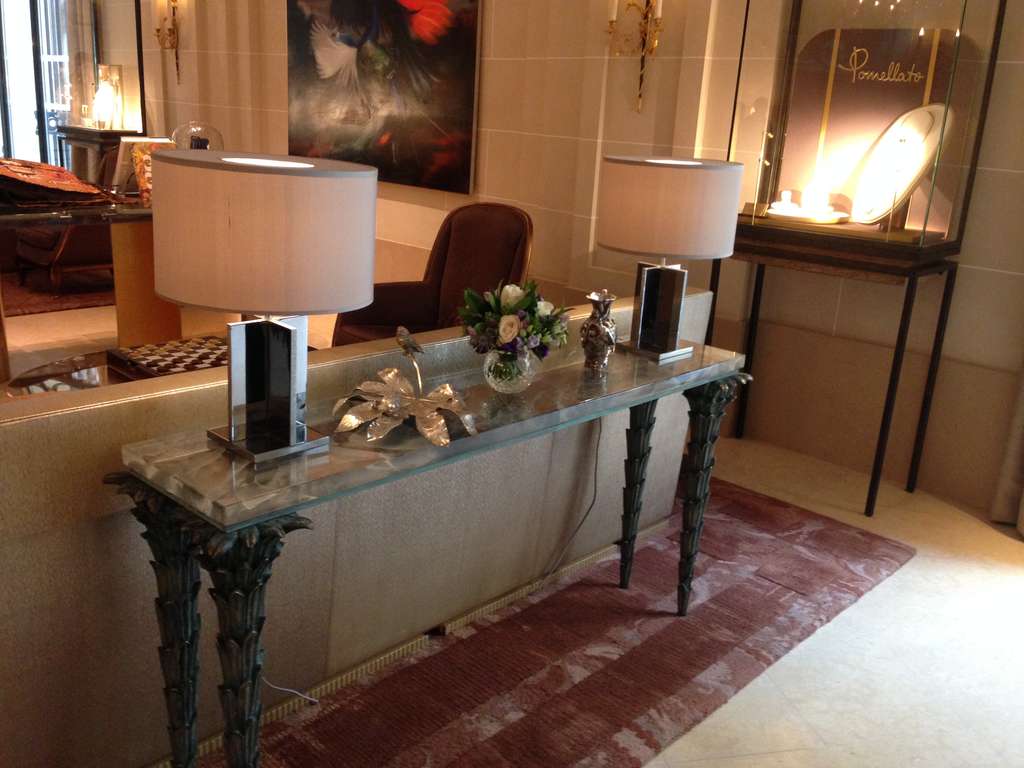What is branding and identity for luxury hotels?
Developing brand identity through “a sense of place”
Sense of place is not just about where the hotel property is located, but also who you are and how you as a brand resonate with the guest. Take for instance a Disney resort. Admittedly it’s not a luxury hotel as such, but when you enter one of these resorts, you know where you are from the design of the entrance, the ambience, the characters, how you are greeted and the service delivered. It’s just the same for a hotel where symbolic rituals and iconic signature elements – from décor and design to brand colors, fabrics and materials – each act as ‘identity markers’ and contribute to providing a unique sense of place for the hotel brand.
Examples include the high-quality residential feel of the Rosewood, the distinct use of blue and gold of the Ritz Paris; as well as the Chinese lions outside the front entrance, the iconic page boys and the extensive lobby lounge of The Peninsula hotels.
It also includes the manner of greeting, for instance, the “from the heart” greeting of One&Only, or employee uniform or dress code, such as the designer-styled wardrobe for employees seen at Rosewood hotels and resorts.
Being recognized by long-standing employees also provides a sense of place for loyal guests; as well as through the brand’s service, in delivering its service philosophy and the brand’s uniquely designed standards. In fact, the whole guest experience reflects who you are as a brand and contributes to providing a sense of place.
As outlined earlier in my first article on this topic, hotels located in historic and iconic buildings are also important in conveying a sense of place. Not only through place identity, but through the brand embracing the building’s history and heritage, restoring and/or refashioning the building’s design and décor as a reflection of their own identity. If developed and well managed, this can provide the basis of the hotel’s soul – a key pillar of luxury hospitality.
All of this provides differentiation through which brands can build loyalty.
Creating unique hotel experiences
Sense of place is also important in the context of providing experiences. From city hotels to resorts, hotels are increasingly offering a sense of place in response to the trend to offer more authentic and meaningful experiences.
Examples include:
- cultural and destination immersion, as well as active involvement in local activities and engagement with the local community;
- an appreciation of the natural environment with guided tours of the local habitat with conservationists, naturalists and ornithologists;
- and understanding of the local history and culture.
For luxury hotel brands, providing a sense of place through experiences is also an opportunity to demonstrate key characteristics of luxury such as authenticity, craftsmanship and exclusivity; and in so doing, create unique brand experiences.
Local authentic experiences with the rise of slow travel
Six Senses, for example, has always been about providing a culturally local experience. The group’s aim is to integrate this into each of their properties through …brilliant design that incorporates regional architecture and landscaping. This results in an extraordinary cultural offering with a strong sense of place.
This is carried through all that Six Senses does from sourcing of local information for guests from books about the local environment, its history, culture and traditions, as well as the natural habitat.
It also forms the basis of a new phenomenon, namely ‘slow travel’, with travelers extending their stay so as to “connect to the place at a deeper level”. They have a desire for travel as a cultural narrative – a place experienced through the stories of its artists and markets, its buildings, its festivals…
, which combines place identity with the experience itself.
But there is a fine dividing line between what is an authentic, local experience and what can feel like commercialization, something that is inauthentic and perceived as ‘touristy’. Take Airbnb for example, again not a luxury hotel as such, but it provides a good example. Its business model is based on providing a sense of place by staying in a real home. By offering local experiences, it claims guests can “live like a local” and be immersed in the local community with authentic activities offered by the property’s host. The risk is that the area becomes so popular that the neighborhood loses its place identity – its authenticity and attractiveness – due to the influx of tourists. This directly impacts the guest and brand experience.

